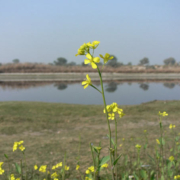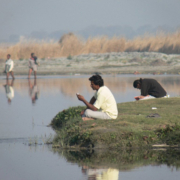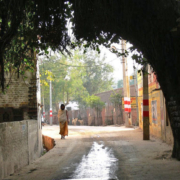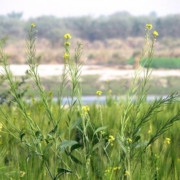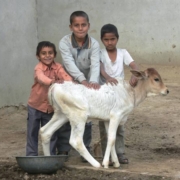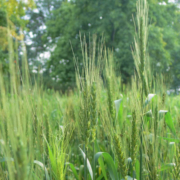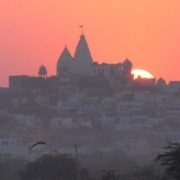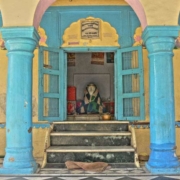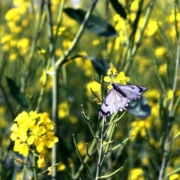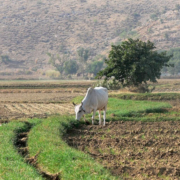Hare Krsna. In 1976 in Vrindaban, a devotee asked this of Srila Prabhupada on a morning walk:
“The devotees are asking one question. They’re wanting to know how it was that even though there is so much distance between, let’s say, Govardhana and Radha-Kunda and Vrndavana, Nanda-grama, Varsana, how it was that still Krsna and Radha could go and meet, and the cowherd boys could go and meet at these various places. They could go such great distances.”
Srila Prabhupada’s reply: “That is the distance for you, not for them. Just like a small ant. It goes from here to here. It is a great, three hundred miles, but for you, one step. Why do you study Krsna like you? Why do you think that Krsna was like you? Avajananti mam mudha manusim tanum asritam [Bg. 9.11]. Krsna can do anything, so (can) His associates.”
Simple but profound truth spoken concisely. Krsna, His associates, and the holy land of Vrindaban are extraordinary, transcendental, and are not limited by the limitations of this world.
In Sri Vrindaban Dham, everything and everyone, including time, act solely for the pleasure of Krsna. Sri Prabodhananda Sarasvati, therefore, instructs us as he so sweetly glorifies the land of Vrindaban:
“The lotus feet of Sri Caitanya are far away, and the formidable age of Kali has arrived. Therefore how can one obtain love for Sri Krsna without having an intense attachment for the land of Vrndavana?”
“When will I reside in Vrndavana like a helpless person while glorifying the transcendental pastimes of Sri Sri Radha and Krsna, while condemning material enjoyment because of achieving supreme bliss within the heart, and while loudly crying out, “O my dear Lord! O Shyamasundara!”
“Although nectar is available, I drink poison. Although I have beautiful eyes, I am practically blind. I always increase my material bondage, which is the cause of misery. O mother Vrndavana, my only hope in life is that you are most affectionate, therefore you will pull me out of the worldly association and give me shelter on your lap.”

